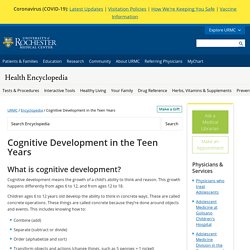

"It is also important for parents to recognize that parental acceptance of adolescent separation and identity formation is necessary for healthy self-esteem and self-concept and enables the adolescent to return to the family later." - Sanders (2013, p. 357)
The parental dilemma, trusting adolescent with autonomy to explore and discover their "ideal self" or not? A parent’s agony between agreeableness and anxiety - that youth's inexperience may lead them into bad company, making bad decisions, and trouble. An understanding of the adolescent's cognitive maturity, ie. capacity for logical and hypothetical reasoning, may be informative.
Erikson recommend pragmatic reality (Markstrom et. al., 1997). Suggesting, adolescents should be allowed to fail. Yet, the ability to learn from failure is success. Meantime, parents should be supportive of adolescents towards such a learning process. The willingness to allow the child to explore and experience failure. Yet, supportive and encouraging of youth to bounce back from their bad experiences instead of harsh criticism. Such a strategy can also help to build mutual trust and bonding between adolescents and parents too.
These are but some of the takeaways from the following opinions on managing "bird in the hand dilemma."
Reference -
Markstrom, C. A., Sabino, V. M., Turner, B. J., & Berman, R. C. (1997). The Psychosocial Inventory of Ego Strengths: Development and Validation of A New Eriksonian Measure. Journal of Youth and Adolescence, 26(6), 705-729 (1997). R. A. (2013). Adolescent Psychosocial, Social, and Cognitive Development. Pediatrics in Review, 34(8), 354–359. doi:10.1542/pir.34-8-354.
Turning Parent-Teen Stress Into Parent-Teen Success. Cognitive Development in Adolescence - Health Encyclopedia. What is cognitive development?

Cognitive development means the growth of a child’s ability to think and reason. This growth happens differently from ages 6 to 12, and from ages 12 to 18. Teens and Risk Taking. Parenting Now - Parent/Teen Conflict. Parenting Your Adolescent's Self-Identity & Self-Esteem.